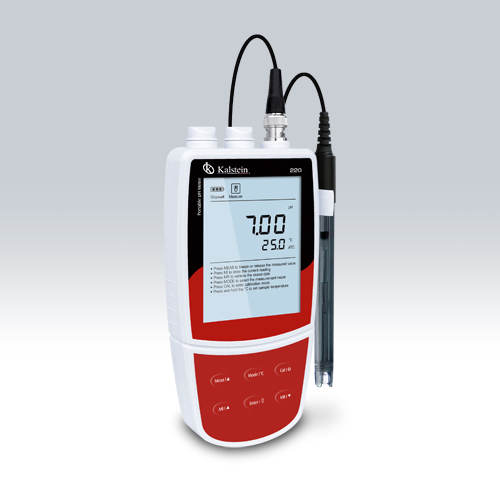In the evolving landscape of modern scientific practice, a component that plays a crucial, yet often underestimated role, is the acidity detector. This essential tool, both in educational and research laboratories, aids scientists to accurately measure acidity levels (or pH) in various samples. In this article, we will focus on how the choice of a reliable acidity detector can add value to your laboratory. Here, renowned manufacturers such as Kalstein come into play, with their range of top-quality laboratory equipment.
An acidity detector, also known as a pH-meter, is a cornerstone in any laboratory. This device translates voltages generated by electrodes into pH readings, which indicate how acid or alkaline a solution is. Precise pH can be vital in experiments, research, and analysis, where a change in acidity can generate significantly different results.
Buying an Acidity Detector: Why Kalstein?
One might wonder: Where does the need to invest in a high-quality acidity detector come from? The answer lies in the multiple benefits this instrument can offer. An acidity detector from a trustworthy and established manufacturer like Kalstein can make the difference between precise results and erroneous conclusions. https://kalstein.eu/categorie-produit/laboratory-sector/ph-meters/?lang=en
Moreover, the durability and ease of use of Kalstein’s acidity detectors allow laboratories to achieve long-term cost optimization. For laboratories with limited budgets, investing in top-quality equipment may seem like a considerable initial outlay, but the return on investment in terms of performance and accuracy usually pays off.
Things to Consider when Buying an Acidity Detector
In choosing an acidity detector, there are several factors to consider beyond price. Aspects such as accuracy, pH range, water resistance, and the need for calibration are essential factors to bear in mind. If you want to learn about the high-end product catalog that we at KALSTEIN have for you, visit us at https://kalstein.eu/?lang=en
Not all laboratories will need an acidity detector capable of measuring in the full pH range (0-14), but those that do will find useful the models offered by manufacturers like Kalstein, which also include advanced features such as automatic temperature compensation.
Where to Buy an Acidity Detector?
Once the purchase of an acidity detector has been decided, the next step is to select a reliable provider. Laboratory equipment can be a significant investment, so it is essential to trust in the sale. Manufacturers like Kalstein stand out in this aspect, offering both quality and an excellent price-value relationship.
In the competitive world of science and research, where accuracy and consistency can make or break an experiment, investing in a top-quality acidity detector is not a luxury, but a necessity. By making the correct decision, ensuring performance, ease of use, and price meet your needs, your laboratory will be in the best position to produce accurate and reliable results.

